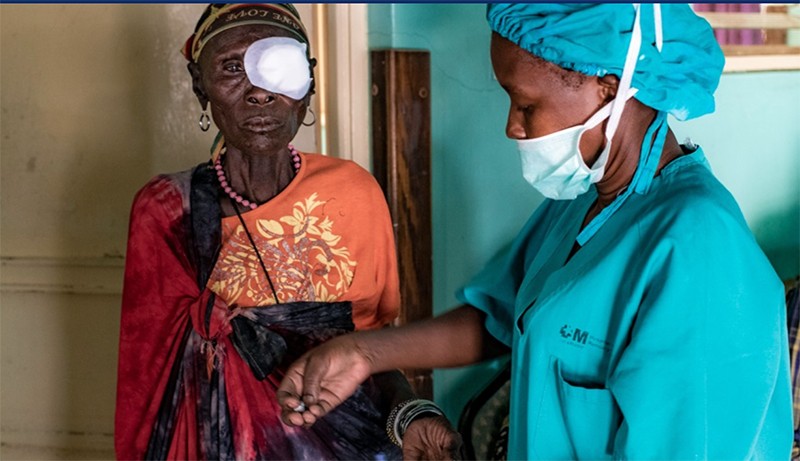New study finds association between use of sunscreen, other skin care products and higher levels of phthalates in children’s urine
A new study led by primary investigator Michael S. Bloom, professor in the Department of Global and Community Health at George Mason University’s College of Public Health, has found that use of skin care products including lotions, hair oils, hair conditioners, ointments, and sunscreen is associated with higher levels of phthalates in children’s urine.
The associations depend in part upon the child’s racial and ethnic identity and their sex as assigned at birth. The study was co-authored by two George Mason Master of Public Health alumni, Juliana Clark and Kelly Garcia, read the statement issued by Global and Community Health at George Mason University’s College of Public Health.
“This is the first study to suggest that different skin care products used by young children may differentially increase exposure to endocrine-disrupting phthalates and phthalate replacements in young children,” said Bloom.
Phthalates and phthalate-replacement compounds are endocrine-disrupting chemicals, meaning they may interfere with the body’s hormones.
Exposure to these chemicals in early childhood has been associated with neurodevelopmental, reproductive, and metabolic disease concerns in previous studies. Some of these chemicals are often used as carriers for the active ingredients in skin care products; others may be used in plastic packaging.
The study collected medical data from 630 children between the ages of four and eight from 10 different sites across the United States, including a clinical examination and a urinalysis.
The child’s parent or guardian was also asked to complete a survey within 24 hours prior to the child’s examination, which included questions regarding the child’s sociodemographic information (race/ethnic identity, sex assigned at birth, etc.).
It also asked parents to list all the skin care products, including lotions, soaps, shampoos, oils, and cosmetics, that were applied to the child’s skin in the 24 hours prior to their examination, with as much specificity as possible regarding the product type and brand or generic name.
“We found associations between recent use of different skin care products and higher concentrations of phthalate and phthalate-replacement compounds,” said Bloom. “There were different relationships between the use of skin care products and the endocrine-disrupting chemicals in children depending on their racial and ethnic identities and their sex assigned at birth. We also found that distinct patterns of using multiple skin care products were predictive of higher concentrations of phthalates and phthalate replacements.”
While Bloom and his team say that further studies are necessary to confirm these findings, the results suggest that children in different racial and ethnic groups may experience different levels of risk for exposure to phthalates. In particular, they found the highest levels of phthalates and phthalate replacements in the urine of non-Hispanic Black participants. The differences may correlate to brand availability and preferences, methods and timing of product application, and/or the frequency of use by children with different racial and ethnic identities.
“The results can inform policies to address the use of endocrine-disrupting chemicals in skin care products that may be used on children and to help advise parents’ decisions about using products to limit their children’s exposure to potential developmental toxicants,” said Bloom.
“Impact of skin care products on phthalates and phthalate replacements in children: the ECHO-FGS” was published online in Environmental Health Perspectives in September 2024. This research was funded by the U.S. National Institute of Health (NIH) Environmental Influences on Child Health Outcomes study.
IBNS
Senior Staff Reporter at Northeast Herald, covering news from Tripura and Northeast India.
Related Articles

Rejected by all, abandoned at birth — Punch’s heartbreaking story goes viral
Tokyo/IBNS: Abandonment, rejection, bullying and loneliness — this is the story of a seven-month-old Japanese macaque whose desperate search for comfort and belonging has moved the internet to tears.

UK woman loses all four limbs to sepsis after dog’s ‘innocent’ lick turns deadly
A British woman underwent a quadruple amputation after developing sepsis, which doctors believe may have been triggered by a lick from her pet dog on a small cut or scratch.

Exercise could rejuvenate your brain and fight Alzheimer’s—Study reveals how!
A new study by researchers at UC San Francisco has uncovered a mechanism that explains how exercise can improve cognition by reinforcing the brain’s protective network of blood vessels, known as the blood-brain barrier.

The silent vision crisis: 50% of cataract blindness left untreated
The World Health Organization (WHO) is urging countries to accelerate efforts to ensure that millions of people living with cataract can access simple, sight‑restoring surgery – one of the most effective and affordable interventions to prevent avoidable blindness.
Latest News

Canada: Foreign Minister Anand silent on cancelling Mexico trips as fights restart

Canada to revoke citizenship of 26/11 accused Tahawwur Rana ahead of Carney visit

DGCA tightens safety norms for non-scheduled operators after recent chopper crashes

Countdown to PM Modi's second historic Israel visit: Strategic talk, Knesset address await

